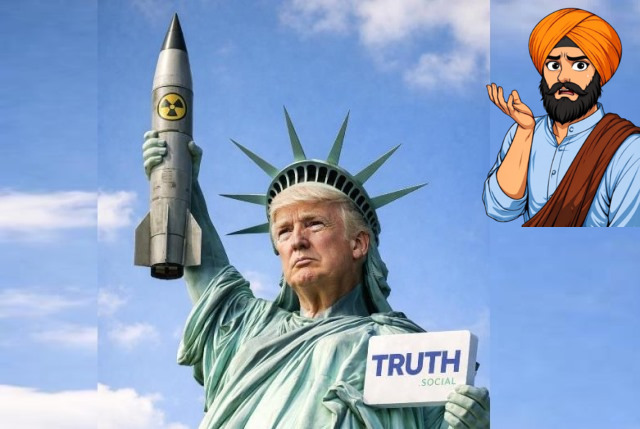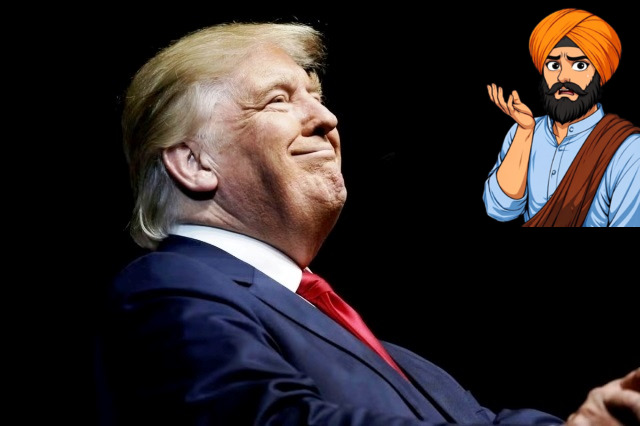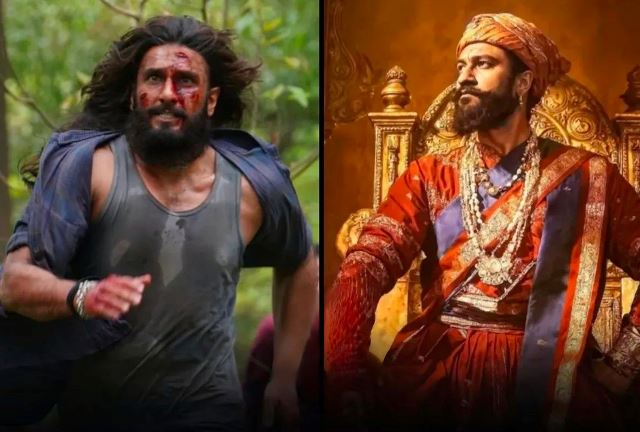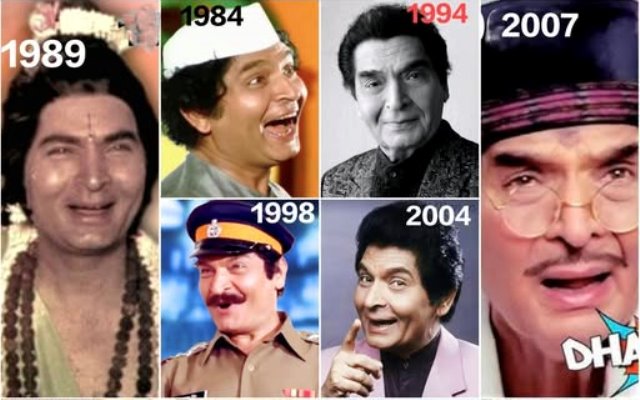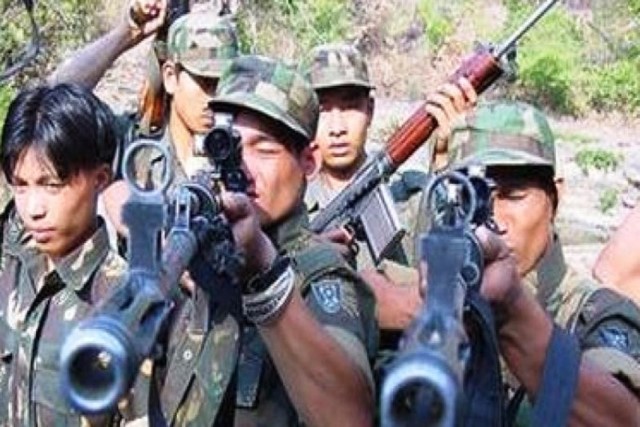
Assam Files: Declassified Despatches And Memories
The National Archives in Kew, west London, is a rich repository of iconic documents and declassified confidential papers, some of them dating back to centuries. It has original documents related not only to Britain’s long colonial encounter with India, but also diplomatic and other official communication related to contemporary India. Declassifying secret papers and periodically releasing them to the public adds to the valuable resource.
One such file recently released revealed new information about a tense period in Assam that I had closely covered as a journalist for The Times of India in the late 1980s, when the secessionist United Liberation Front of Asom (ULFA) had unleashed waves of political violence.
The file triggered memories of my time in the state and the north-east region that reflects much of the best of the idea of India but has long faced neglect and worse from policy-makers in New Delhi, where a security-oriented approach has influenced policy and allocation of resources. The first person to enter my office in Guwahati with a press release was an articulate and politically sharp teenager, who was part of a demonstration outside the then home minister’s house – that teenager is today Assam’s deputy chief minister.
Another person I often interacted with was one of the leading functionaries of the All Assam Students Union (AASU) – he is today the chief minister. In Assam, particularly since the agitation of the mid-1980s, the path to political power has often gone through university campuses and student politics, best exemplified by Prafulla Mahanta and Bhrigu Phukan, who were AASU leaders during the agitation, signed the Assam Accord of 1985, and went on to set an example to others by soon after forming the Asom Gana Parishad (AGP) government in 1986.
The declassified file relates to developments in 1990, days before the Mahanta government was dismissed and the Indian Army launched Operation Bajrang against the ULFA. It reveals that three of ULFA’s senior functionaries met a British diplomat in Dhaka and sought the UK government’s help to further its cause at the international level. The details reflect a phase in Assam’s contemporary history when it was not clear whose sympathies lay where, for or against the ULFA, and duplicity marked much political discourse.

It was also when the Bodo agitation was at its peak, with the late Upendra Nath Brahma, another student leader I got to know, and who went on to acquire iconic status, followed chapter and verse from the example of the Assam agitation and sought a separate state for the Bodo tribe.
The file shows that while the ULFA, which was banned by New Delhi in 1990 and whose leaders and members functioned from neighbouring Bangladesh, Myanmar and at one time also from China, was attacking British commercial interests in the tea gardens in Assam, but was seeking the UK’s help at the political level and offering a British diplomat posted in the high commission in Dhaka a tour of its training camps in Assam. In 1990, the Mahanta-led AGP government was a constituent of the National Front government led by V P Singh, but it was dismissed on November 27 after the NF government fell and Chandra Shekhar formed his minority government.
On October 2 of that year, the files reveals that ULFA’s three senior functionaries – general secretary Anup Chetia (real name Golap Barua), publicity secretary Sidhartha Phukan (real name Sunil Nath) and Iqbal (real name Munin Nabis) – met the diplomat, David Austin, who reported the meeting to London in a note described as “fascinating”. Austin wrote on October 4 that the ULFA’s “inspiration is the State of Israel. If Israel can survive surrounded by the hostile Arab world, then why not Assam surrounded by hostile Indian forces?”
He was shown photographs, including those of a training camp in the Lakhimpur district of Assam, and some of the outfit’s leaflets. The photographs included one of its commanders-in-chief, Paresh Barua, standing at the China border with a Chinese army liaison officer. He wrote: “The three men asked for help/advice in four separate areas: UK support in publicising the ULFA’s activities and aims; advice on whether the ULFA would be able to set up an office in the UK; an introduction to other Western diplomatic missions in Dhaka; and how to get in contact with authorities in Israel who may be able to help them”. He added that the ULFA’s propaganda effort was a “new one” and that they were able to “approach foreign diplomatic missions in Bangladesh without the possibility of RAW intervening – something it is unable to do in New Delhi”. Austin, however, declined the offer to visit the camps.
On November 5, diplomat D D W Martin in the British high commission in New Delhi described Austin’s note as “fascinating”, and wrote to the Foreign Office in London: “They have obviously now decided to target western diplomats. That they should do so tends to corroborate the periodic press allegations that the ULFA can operate with impunity in Bangladesh, perhaps even with the tacit complicity of the authorities,” he added. According to Martin, the China link mentioned in Austin’s note was “new and interesting”.
He wrote, “I have only heard it mentioned before by a Congress-I MLA in Assam, who alleged that the Indian Intelligence Services knew all about the Chinese involvement, but were keeping quiet for fear of damaging the process of rapprochement between India and China. During their meeting with David Austin, the ULFA were understandably silent about their activities against the tea companies in Assam. But it seems extraordinary that the organisation should make an approach to us on the political level, while at the same time, threatening our commercial interests in Assam”.
On Austin seeking advice on whether he should hold further meetings with the ULFA functionaries, Martin wrote that no such meetings should be held, stating: “The ULFA is a militant organisation pursuing violent means to subvert the established order in Assam. By pressurising tea companies, it also threatens British interests. Contacts with the ULFA would therefore be hard to explain to the Government of India.”
In the late 1980s and 1990, as the ULFA’s ‘publicity secretary’, Phukan had set up what Martin called a “sophisticated PR machine”, which was then focused on the Indian press, with journalists granted exclusive interviews with ULFA leaders. The journalists, he added, were “taken to spectacular press conferences in the bush and exposed to a variety of more or less impressive stunts designed to show off ULFA as a formidable fighting unit”.
This writer was among several journalists in Guwahati at the time who were given access to Phukan and other ULFA leaders, who expounded on their goals to secede from Assam and made declarations in the cut-and-thrust of agitational politics against the state government and New Delhi.
Since the time Austin and Martin wrote their dispatches in 1990, there have been several ULFA-related developments, including the army’s Operation Rhino, surrender by several of its leaders and functionaries, suspension of operations, and talks with New Delhi by a section of the outfit that has come over-ground. Since another section continues with the ULFA’s secessionist aims and subversive activities, the ministry of home affairs in November 2019 extended until 2024 the ban first imposed in 1990 under the Unlawful Activities (Prevention) Act, 1967.
